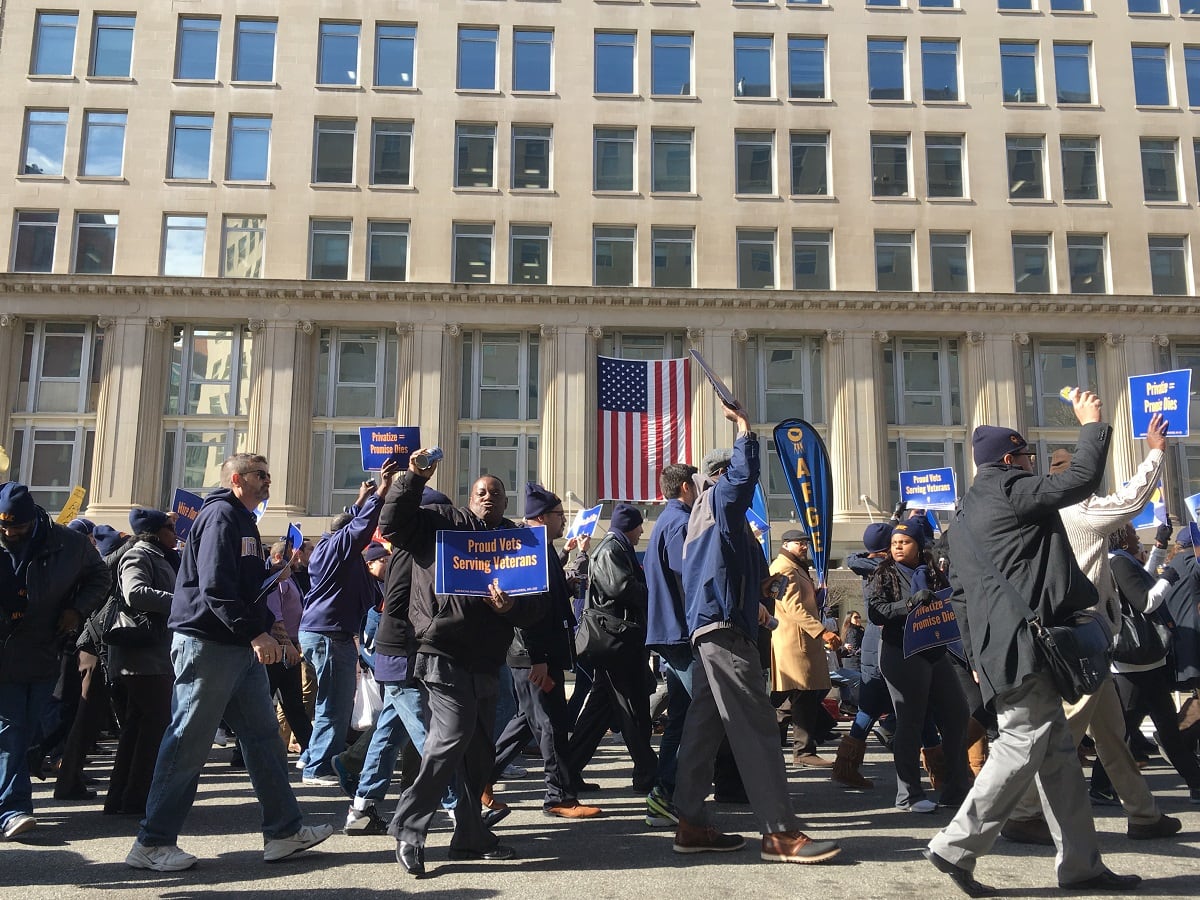The Department of Veterans Affairs has tools at its disposal to lay off substandard staff much faster, but leaders are shutting down the authorities instead of using them, according to Republican lawmakers and some outside advocates.
Critics point to the ongoing three-year saga at the Loma Linda Healthcare System in California, where an internal investigation found a supervisor abused staff and showed up late for work, but still remains employed thanks to bureaucratic red tape and appeals.
Congress had approved the speedier process as part of accountability measures designed to quickly remove poor-performing VA employees. But VA leaders say those new authorities have faced numerous challenges in the courts, limiting their scope and effectiveness, so the department is relying on old, time-consuming processes to address personnel disputes.
At issue are firing authorities given to VA management under the 2017 VA Accountability and Whistleblower Protection Act. The legislation was the culmination of years of debate on Capitol Hill regarding ways to speed up disciplinary actions against problematic workers in the department, which became a key talking point of President Donald Trump’s 2016 campaign.
RELATED

But in March, the department announced plans to stop using the new authorities altogether, opting instead to revert to old rules.
“VA can still demote, suspend, and remove employees when the evidence supports that proposed action,” Tracey Therit, chief of VA’s Human Capital Office, told members of the House Veterans’ Affairs Committee during a hearing on workforce management on March 9. “VA has demonstrated the ability to hold employees accountable without having to use [the 2017 authorities.]”
During a press conference two weeks later, VA Secretary Denis McDonough said the 2017 law “wasn’t really helping us manage our workforce as much as it was getting us in front of federal judges and other administrative bodies.” He said he is confident that the department’s workforce is being managed properly and held accountable.
But critics who fought for the changes six years ago disagree. Rep. Mike Bost, R-Ill. and chairman of the House Veterans’ Affairs Committee, wrote to McDonough this week to ask for more details on the Loma Linda situation and to reinstate use of the 2017 authorities.
“Failing to quickly discipline employees is a disservice to both their peers and the veterans they serve,” he wrote. “Creating a better work environment and a better VA for veterans must begin with more accountability, not less.”
In the Loma Linda case, VA’s internal investigation found cases of the supervisor treating staff as personal assistance, forcing them subordinates to buy lunches and handle transportation to and from work. It also accused the supervisor of “contributing to a racially charged work environment” at the medical center.
But Bost said the supervisor remains employed to this day, despite “the massive amount of time, money, and energy” on investigations and disciplinary attempts by VA leaders.
Darin Selnick, a senior advisor to Concerned Veterans for America and a former Trump administration staffer who helped author the 2017 law, said that VA officials have not followed through on multiple court challenges to the firing authorities and opted against using them in other cases, including the Loma Linda case.
“They could have come to Congress to fix the issues, or followed through with appeals,” he said. “They didn’t seem to want to win.”
Selnick accused VA leaders of “not acting in good faith to solve its accountability problems,” and charged that the apathy towards the problem will eventually lead to recruiting and retention challenges.
VA officials have countered that their hiring efforts and retention levels are up over recent years, and that they are making sure poor performing employees are not allowed to drag down office productivity. McDonough promised to coordinate those efforts with members of Congress in the months to come.
Leo covers Congress, Veterans Affairs and the White House for Military Times. He has covered Washington, D.C. since 2004, focusing on military personnel and veterans policies. His work has earned numerous honors, including a 2009 Polk award, a 2010 National Headliner Award, the IAVA Leadership in Journalism award and the VFW News Media award.




